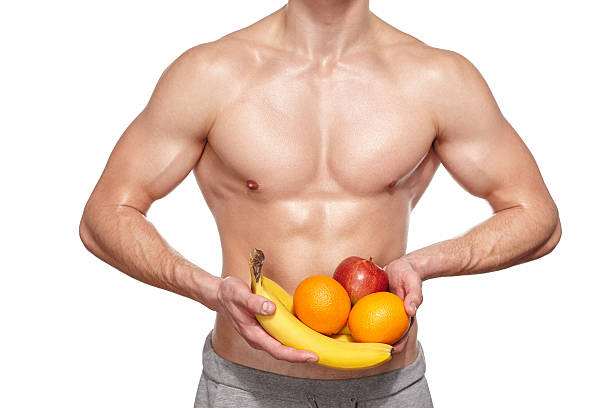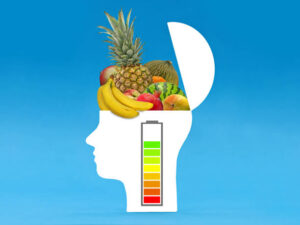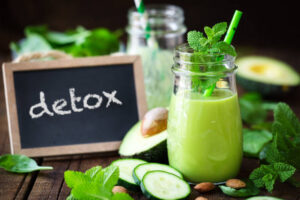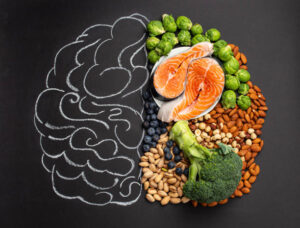If you’re skeptical about whether it’s possible to bulk up without animal products, you’re not alone. Many question whether a vegan diet can provide the protein and calories needed for serious muscle growth. Spoiler alert: It absolutely can! Let’s dive into what makes a vegan diet powerful for muscle-building, plus practical tips, meal ideas, and nutrient advice.
Why a Vegan Diet Works for Muscle Building
Despite common misconceptions, the vegan diet is fully capable of supporting muscle growth. Whether you’re new to veganism or just starting your fitness journey, knowing the differences between a vegan diet and a plant-based one is essential.
The Basics of Building Muscle on a Vegan Diet
Building muscle requires three primary components: sufficient protein intake, a caloric surplus, and workout consistency. Meeting protein needs may require more planning when following a vegan diet, but it’s entirely achievable with the right foods.
1. Protein: The Building Block of Muscle
The most common question about vegan muscle building is, “Where do you get your protein?” Plant proteins, like those found in legumes, grains, nuts, and seeds, can fully support muscle growth.
Breaking Down Vegan Protein Sources
Here’s a breakdown of the best vegan protein sources for muscle growth:
- Lentils – 18g protein per cup. Great in soups, salads, and curries.
- Chickpeas – 15g protein per cup. Perfect for salads, stews, or roasted as snacks.
- Tofu – 20g protein per cup. Try it scrambled, in stir-fries, or baked.
- Tempeh – 21g protein per cup. Great for grilling, sautéing, or crumbling into dishes.
- Quinoa – 8g protein per cup. A versatile grain that’s a complete protein.
- Seitan – 25g protein per 3 oz. This gluten-based protein is excellent in place of meat.
Personal Tip: When I first started, I underestimated how filling these high-fiber, high-protein foods could be. By blending them into smoothies or incorporating them into sauces and snacks, I found it easier to hit my protein targets without feeling too full.
Combining Proteins for Full Amino Acid Profiles
Some plant proteins lack one or more essential amino acids, which makes protein combining beneficial. Pairing foods like rice and beans or peanut butter with whole-grain bread creates a complete amino acid profile, ensuring your muscles get everything they need to repair and grow.
2. Caloric Surplus: Fueling Your Gains
Building muscle requires consuming more calories than you burn, also known as a caloric surplus. Vegan diets, rich in fiber and water, can be filling, which sometimes makes it tricky to eat enough calories for growth.
Tips for Increasing Caloric Intake
If you struggle to eat enough calories, here are some tricks to try:
- Opt for Calorie-Dense Foods: Nuts, seeds, avocados, and dried fruits pack calories without needing large portions.
- Add Healthy Fats: Drizzle olive oil over your veggies, blend nut butter into smoothies, and don’t skimp on coconut milk in curries.
- Snack Strategically: Keep protein bars, trail mix, and homemade energy bites on hand to boost your intake between meals.
Quick Tip: I found success by prepping a jar of trail mix with almonds, walnuts, and dried cranberries. A handful here and there adds up without feeling like extra effort.
3. Nutrient Timing: Pre- and Post-Workout Nutrition on a Vegan Diet
Nutrient timing can make a significant difference in muscle recovery and growth. Eating the right foods before and after your workouts ensures you’re maximizing each training session.
Pre-Workout Meals for Energy
Eating a small meal with complex carbs and protein 1-2 hours before a workout fuels your muscles with slow-release energy.
- Banana with almond butter: A great mix of carbs and fat for a quick pre-workout boost.
- Oatmeal with berries and a sprinkle of chia seeds: Provides sustained energy.
- Whole-grain toast with hummus and sliced cucumber: Simple, satisfying carbs and protein.
Post-Workout Recovery Meals
Post-workout nutrition is about protein and carbohydrates to help repair muscle fibers and replenish glycogen.
- Smoothie with pea protein powder, frozen berries, and spinach: A fast-digesting, protein-rich option.
- Chickpea salad with quinoa and mixed greens: High in protein and slow-digesting carbs.
- Tofu stir-fry with veggies and rice: A satisfying, balanced meal for muscle recovery.
Essential Nutrients for Vegan Muscle-Building
Some nutrients are typically higher in animal products, so vegans should pay close attention to getting enough of the following:
1. Vitamin B12: Found in fortified foods like plant milks or nutritional yeast, or taken as a supplement.
2. Iron: Include iron-rich foods like spinach, lentils, and fortified cereals, pairing them with vitamin C sources (like bell peppers or citrus) to enhance absorption.
3. Omega-3 Fatty Acids: Important for reducing inflammation. Get these from chia seeds, flaxseeds, walnuts, or consider an algae-based DHA/EPA supplement.
4. Calcium: Needed for strong bones, which support muscle growth. Find it in fortified plant milk, almonds, tofu, and leafy greens.
Vegan Muscle-Building Sample Meal Plan
Here’s a 3-day high-protein, muscle-building vegan meal plan to get you started:
First Day
- Breakfast: Oatmeal with almond butter, chia seeds, and sliced banana (20g protein)
- Lunch: Lentil salad with quinoa, mixed greens, and a tahini dressing (25g protein)
- Snack: Smoothie with pea protein, spinach, and frozen berries (20g protein)
- Dinner: Tofu stir-fry with brown rice, broccoli, and bell peppers (30g protein)
Second Day
- Breakfast: Smoothie with soy milk, frozen berries, and hemp seeds (25g protein)
- Lunch: Chickpea wrap with avocado, bell peppers, and mixed greens (20g protein)
- Snack: Mixed nuts and an apple (10g protein)
- Dinner: Tempeh with roasted sweet potatoes and steamed kale (30g protein)
Third Day
- Breakfast: Chia pudding with almond milk, topped with walnuts and berries (18g protein)
- Lunch: Seitan sandwich with whole-grain bread, avocado, and tomato (25g protein)
- Snack: Hummus with veggie sticks and a protein bar (15g protein)
- Dinner: Black bean tacos with corn tortillas, salsa, and guacamole (22g protein)
Overcoming Common Challenges in Vegan Muscle Building
Even with the best intentions, challenges are common. Here are a few typical issues and ways to address them.
1. Struggling to Meet Protein Goals?
Try including a variety of protein sources daily. Don’t rely only on beans or tofu—mix it up with tempeh, seitan, and protein powders.
2. Dealing with Digestive Issues from High Fiber?
A fiber-rich diet is fantastic for health, but it can sometimes cause digestive discomfort if you’re not used to it. Gradually introduce high-fiber foods like beans and lentils, and consider soaking or sprouting grains and legumes to make them easier to digest.
3. Finding Variety in Meals
One common complaint is the repetition of meals. Experiment with global cuisines—Indian dals, Mediterranean chickpea dishes, or Southeast Asian tofu stir-fries offer variety while providing muscle-building nutrients.
Advanced Tips for Building Muscle on a Vegan Diet
If you’re looking to maximize your gains, try these additional strategies:
Track Your Macros
Tracking your macronutrients (protein, carbs, fats) helps ensure you’re consistently meeting your needs. Apps like MyFitnessPal make it easy to log meals and monitor intake.
Focus on Progressive Overload in Training
Diet is only one side of muscle building; training is equally crucial. Aim to gradually increase the weight, reps, or intensity of your workouts over time for optimal growth.
Consider Supplementing Creatine
Creatine, typically found in meat, is available in vegan form as a supplement. It enhances strength and performance, which can help you push harder during workouts.
Key Benefits of a Vegan Diet for Building Muscle
Choosing a vegan diet for building muscle offers unique advantages that can support not only muscle growth but also overall health and longevity. Here’s why more athletes and fitness enthusiasts are opting for plant-based muscle-building:
1. Enhanced Recovery and Reduced Inflammation
A vegan diet, especially one rich in whole foods, is packed with antioxidants and phytonutrients. These natural compounds are known to combat inflammation and speed up recovery after intense workouts. For those building muscle on a vegan diet, this translates to less downtime and faster gains, as well as reduced muscle soreness.
2. Healthier Heart, Healthier Gains
Plant-based diets are linked to better cardiovascular health, which is crucial for anyone aiming to optimize their fitness. Heart health plays a direct role in workout performance and stamina, and a well-rounded vegan muscle-building diet supports a strong cardiovascular system through fiber-rich foods, healthy fats, and balanced nutrition.
3. Sustained Energy from Nutrient-Dense Foods
The high nutrient density of plant foods provides long-lasting energy, essential for intense training and consistent progress. A vegan muscle-building diet naturally offers steady energy without the heavy, sluggish feeling that can come from meat-based meals, allowing for improved endurance and more productive workouts.
4. Lean Muscle Mass with Less Fat
A vegan diet, when well-planned, often results in lean muscle gains with lower fat intake. Many plant-based proteins are low in saturated fat, which supports a leaner physique. By focusing on high-protein vegan foods for muscle building like tofu, tempeh, and legumes, athletes can develop lean muscle mass without the excess fats that can come from animal proteins.
5. Ethical Gains with Plant-Based Power
For those who prioritize both personal health and ethical values, a vegan diet offers a pathway to sustainable muscle-building. Vegan diet for athletes helps them reach their fitness goals while reducing their environmental footprint and supporting animal welfare, making it a holistic choice that aligns with their values.
Conclusion: Building Muscle on a Vegan Diet Is Entirely Possible
Building muscle on a vegan diet is doable with the right approach. Focus on diverse protein sources, ensure you’re eating enough calories, and stay consistent with your training. Remember, the key is balance and variety—both in your diet and workout routine. So load up on plant power, lift those weights, and watch your muscles grow!







